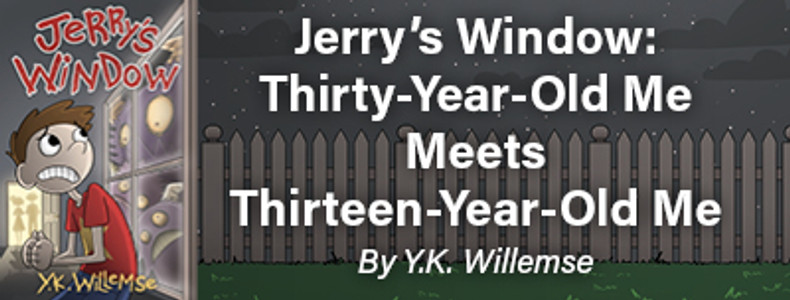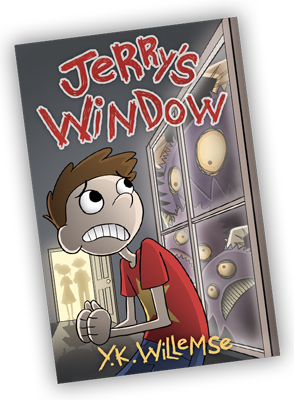A
drizzly grey Sunday on the “dark side” of Pukekohe. Cold and
miserable. A thirteen-year-old and a nine-year-old banished from the
house to the neighbouring church hall, an older building with zero
insulation and condensated windows.
We sat there, my brother and I, staring at the second or third game of Life that we had just finished. I had been prepared and brought notebooks and pens. He hadn’t brought anything other than a board game. My father - a vicar in the church next door - and my mother were having “grown-up” discussions with a family they had invited over from church. The house was small, and it made sense we couldn’t be around. We had had a brief lunch of pizza bread before being sent away. Our older two sisters and our youngest brother and sister were still over at the house. Presumably my older two sisters were being made to take care of the younger two - or do the dishes.
“I’m bored,” Michael said.
“Wanna play again?”
“No.”
“Me neither. We’ve done it heaps. I’ve got an idea.”
I opened my notebook and started writing.
“Are you done yet?” he asked me.
“No. Hang on.”
I was writing as fast as I could. I was used to typing my stories on the computer. I was a fast typist for my age - sixty to eighty words per minute when I didn’t have to think too hard, just follow the dictation in my head.
I finished the first scene and put the notebook down at last. “Now.” I opened it up and started reading.
“The alarm clock shrieked at six am…”
In moments, my brother was acquainted with Mr Ronden, a slightly dopey and lovable middle-aged man. Next came Jeremy Ronden, my protagonist - a wild child, wizard of mischief who did all the things that my brother and I would only have dreamed of doing, being raised in an ultra-strict and conservative home-schooled household.
I finished reading the scene and put the book down.
“Write more, write more,” my brother begged.
“You like it?”
“It’s great.”
I kept going.
I wrote Jerry’s Window by hand at the age of thirteen. The first two chapters I wrote that day, in the old church hall. I completed the rest within a few months from that date, reading it out loud to my brother as I went. I started a sequel, gave up, and continued writing it later at approximately fifteen. Finally I wrote a third book at about sixteen. The first two books were entirely hand-written in notebooks, read out loud to my brother as each chapter was completed. I typed them up and revised them draft by draft at a later point.
And now at thirty, I’m finally giving the first book to other kids.
There’s something odd that happens when you write a book during childhood. It’s like a time capsule of exactly what you were feeling back then. You might be ashamed of it as an adult or think it’s dumb. But it tells you things about yourself and things about the past. I would admit in fiction things that I never admitted in real life. As a thirty-year-old (and a parent now myself), I can look back on these books with a very different perspective. I can meet my child self in them. I might never be a great author. But the books that I wrote in my childhood serve a very distinct purpose in helping me work through difficult issues of the past. I’m glad I wrote them, even if some of them are never published and never earn me a cent.
Jerry’s Window: a book in which a ten-year-old boy causes mayhem wherever he goes, terrorising the adults around him, and bringing on himself the ultimate punishment of monsters kidnapping him. He is uniformly labelled a bad kid, and adults find him easiest to deal with far away. He feels unwanted wherever he goes and distracts himself from feeling unloved by creating trouble.
I never soaped the aisle of my local school bus. I didn’t even attend school. School was very much a fantasy environment for me, growing up. (Ironically, as an adult I’ve spent far more time in schools, teaching singing and piano.) I never stole items from the local bakery or set off stink bombs in my parents’ lounge or tried to steal a gold tooth from my father’s mouth. But I did frequently feel like a bad kid, and I used writing as a way to escape the overwhelming guilt and low self esteem that was my constant reality. Jerry’s Window was a fairytale for me, because despite all the wicked things Jerry does, his parents still choose to save him and love him as their child, and overtly say so. Jerry’s Window redeemed the sadder moments of my childhood.
In the movie Saving Mr Banks, P. L. Travers struggles to come to terms with the movie that Walt Disney is making of her book Mary Poppins (get over it, Travers - loads of us authors can only dream of that kind of attention!). But I really do get it, because her father - whom she loved dearly but who failed her terribly in her childhood - is coming to life on the big screen, and she feels vulnerable and exposed (even traumatised) by it. And Walt Disney candidly says to her at one point that even though his father was abusive and had crushingly high expectations of his children, “I’m so tired of remembering it that way”. Together, Disney and Travers save the author’s father. They rewrite part of Travers’ childhood. They do in fiction what never could have happened in reality. They redeem the past.
And that, in a nutshell, is one of the reasons I write.
Jerry’s Window is a book in which both the child and the parents are redeemed. And that was redemptive for me too.


